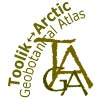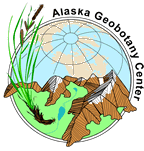Happy Valley Permanent Vegetation Plots
Walker, D.A., Auerbach, N.A., Nettleton, T.K., Gallant, A., Murphy, S.M. 1997. Happy Valley Permanent Vegetation Plots: Site factors, physical and chemical soil properties, plant species cover, photographs, soil descriptions, and ordination. Arctic System Science Flux Study, Institute of Arctic and Alpine Research, University of Colorado, Boulder, CO.
Home //
Preliminary vegetation classification //
Vegetation communities and sites //
Legend for environmental variables //
Environmental data //
Relevé size, percent cover //
Soils data //
Relevé species data //
Appendices:
Field descriptions of soils //
Plot and soil photos //
Plot location map
Field Description of Soil, Plot HV-31
| Plot Number: | HV-31 |
|---|---|
| Location: | Hillslope about 300 m west of Happy Valley camp |
| Description by: | A. Gallant |
| Sample Date: | 7/26/94 |
| Sample Time: | |
| Classification: | |
| Parent Material: | Hillslope colluvium and till |
| Geomorphic Surface: | |
| Elevation: | 1000 ft |
| Slope: | 4° |
| Aspect: | E |
| Vegetation: | Moist Carex bigelowii, Dryas integrifolia, Cetraria cucullata, Salix glauca, Tomentypnum nitens, graminoid, dwarf-shrub tundra |
| Horizon: | Description: |
| Oi | 0-10 cm | Sample S-156 |
| Strong brown (7.5 YR 4/6). 0% gravel; abrupt, smooth boundary. Composed mainly of mosses (Aulacomnium turgidum) but also leaves and roots. Top 1 cm is moss. | |
| Oa | 10-19 cm | Sample S-157 |
| Black (10 YR 2/1). 0% gravel; abrupt, smooth boundary. Many very fine roots and coarse roots are common. | |
| Bw | 19-36+ cm | Sample S-158 |
| Dark gray-brown (10 YR 4.5/2). For some patches gray (10 YR 5/1) is the original color of the layer before decomposition of organics and gravel (gravel oxidation responsible for mottles). Enough decomposition has occurred that predominant horizon color is (10 YR 4.5/2) as already listed. Less than 10% gravel; sticky plastic consistence (wet). Silty clay loam texture. Many very fine roots, cobbles up to 3 cm in diameter. Large, strong brown (7.5 YR 4/6) mottles are common. They are diffuse due to a mixing with surrounding material. | |
| Permafrost | 36 cm | |



